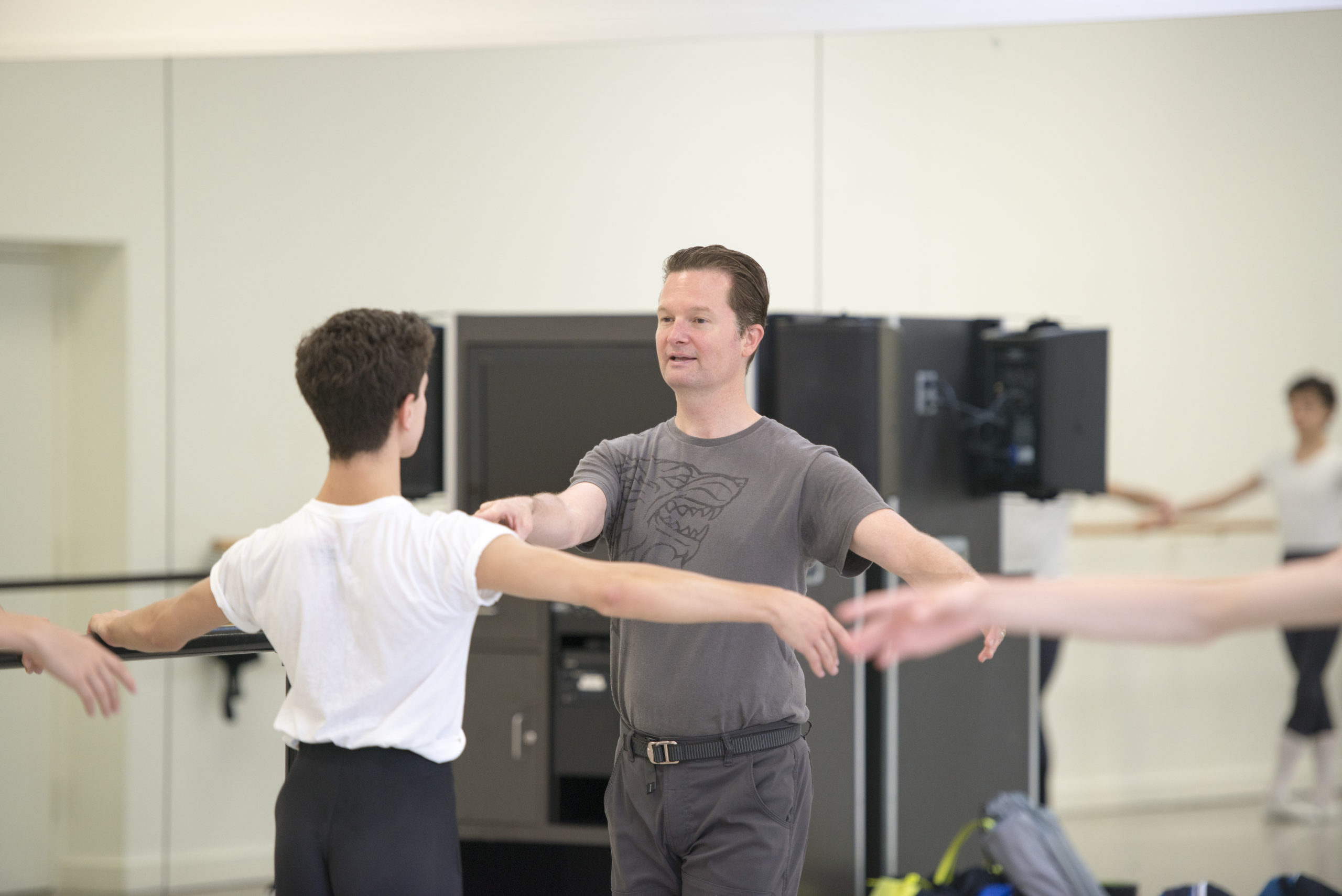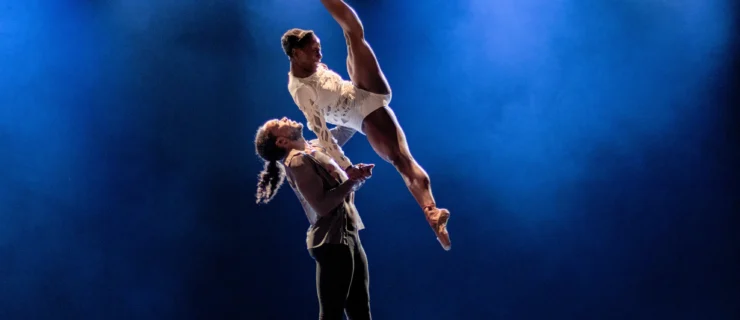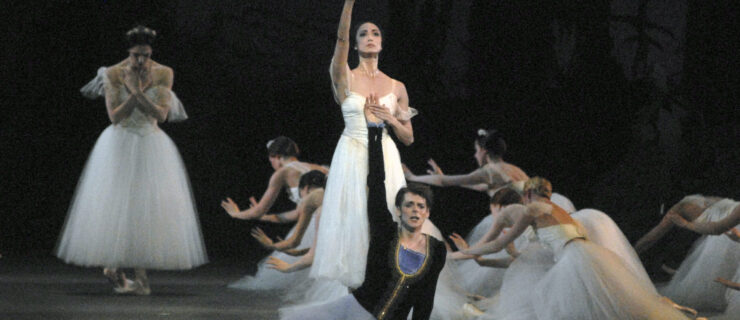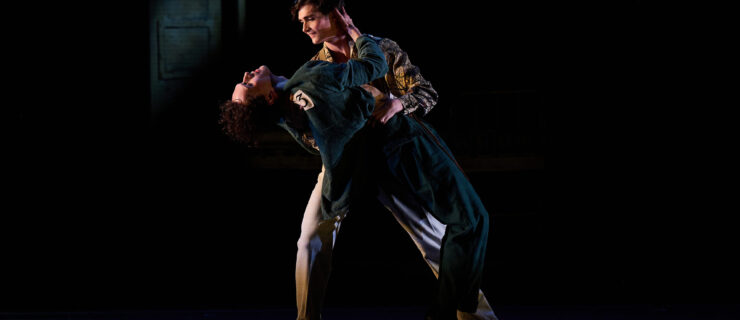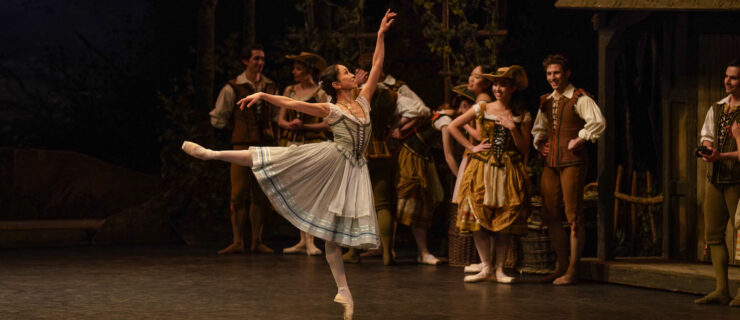Boston Ballet’s Peter Stark Embarks on New Role as President and Director of The Rock School
The ballet world was stirring last August when it was announced that Bojan Spassoff would be retiring from his role as president and director of The Rock School for Dance Education after more than three decades. Together with his wife, Stephanie, Spassoff has coached some of ballet’s brightest stars, including Michaela DePrince, Isaac and Esteban Hernández, and Christine Shevchenko. Now Peter Stark, associate director of Boston Ballet II and head of Boston Ballet School’s men’s program, will take the reins effective February.
Stark, a former mentee of Fernando Bujones, was a student of the Spassoffs himself at the New York State Summer School for the Arts. A graduate of the School of American Ballet, Stark went on to perform with the New York City Ballet, Boston Ballet and The Washington Ballet. Before joining Boston Ballet II, he also served as school director of the Orlando Ballet for a decade, where he expanded it to four locations and founded Orlando Ballet II. Stark also founded Next Generation Ballet, a pre-professional training program and company in Tampa.
Dance Teacher caught up with Peter Stark and Stephanie Spassoff as The Rock School begins a new chapter. Stark highlighted some of his top priorities as he prepares for his role, including championing diversity and inclusion, and promoting teacher training to ensure students are taken care of along the way.
Stephanie, what stood out to you and Bo about Peter? And have you worked together before?
We’ve crossed paths many times. We would see Peter at Youth America Grand Prix and would always be so impressed by his students. They were disciplined and also very nurtured and supported during that process. We have great respect for him.
Peter, what new ideas are you hoping to bring to the school?
The Rock School has created great dancers, and I think the first task is to maintain the work that was done. Of course, the whole field is focusing on bringing people back into the dance studios and the theaters; there’s a build-back from COVID that we’re all dealing with.
The other thing I love about The Rock School graduates is that they have succeeded in a variety of types of companies. Stylistically, I think Bo, Stephanie and I are all pluralists, and we see all kinds of ballet being beautiful. In the last six and a half years of working for Boston Ballet, I have seen that the versatility that is required of a dancer is absolutely remarkable. A dancer will literally go from rehearsing a Balanchine ballet to a Sleeping Beauty variation to a Bill Forsythe, then to a new work in socks. Because of that incredible dynamic range of what’s required of a dancer, we have to continually look at how we put together a curriculum to prepare dancers for that.
RockReach has been a successful community outreach program for The Rock School. Do you have any other thoughts on how to build diversity?
Peter: Diversity is absolutely a priority. There are a lot of different kinds of diversity. There is certainly diversity of race, but also of body shape and size, which I think is overdue and long welcome. I also think there is diversity of personal identity. I think we are on a bold, new frontier. Race is part of it, but it has to be much bigger. Yes, we need to recruit students who are representative of the general population, but we also need to educate our faculty on how to support our students, understanding not just how to teach ballet, but how to also be educators. I firmly believe that the best dance teachers are educators first and dance teachers second.
Stephanie: We are fortunate that our faculty come from diverse backgrounds, so they have trained in many other dance forms. They have a breadth of exposure that is wonderful.

Another big topic in ballet right now is around dancer mental health and well-being. How will you ensure dancers are taken care of both in and out of the studio?
Peter: My esteemed colleague, Margaret Tracey, who was the school director at Boston Ballet for many years, instituted regular teacher trainings, and I will definitely follow that example. Dance is [one of the few things] you can teach without any sort of certification or qualification. Running a dance organization, it is our responsibility to educate teachers on childhood development and what happens emotionally and physically during puberty, to understand and recognize symptoms of depression or eating disorders. Your heart can be in the right place, but you have to be educated, so I will certainly commit to that.
You also were in charge of the men’s program at Boston Ballet School. Any thoughts on evolving the men’s program at The Rock School?
Peter: I actually like to include men in diversity, which, as I mentioned, is a multifaceted priority. But we all know that the field is predominantly female and yet we need to provide equal opportunities for scholarship and training for both men and women. I think the strongest men’s programs have really shown a great commitment to reaching out to boys, encouraging them into the field and providing a strong male curriculum. I know The Rock has trained outstanding male dancers, and I am thrilled there are some wonderful male teachers on its current team.
Stephanie, will your role still largely stay the same?
It’s going to be up to Peter, and I want to certainly make it as easy for him as I can. I will be happy to continue doing what I’ve loved and whatever I can to pave the way for him.
What are you both excited for in this next chapter?
Peter: I’m excited for all of it. I actually like to think working for the team here in Boston, in a more subordinate role, will make me a better leader this time out. I’ve learned a lot from [Boston Ballet artistic director] Mikko Nissinen and Margaret Tracey.
Stephanie: Towards the end of the Moscow International Ballet Competition in 2005, I was talking with our dear friend and former artistic advisor, [the late] Violette Verdy. She was becoming concerned and said, “I’m afraid we are going to lose classical ballet.” I said to her, “Violette, I really feel strongly that this is going to broaden and enrich. Classical ballet will only become more popular and filled with fresh ideas.”
While I adore classical ballet and music, you have to grow and explore, and what’s not worthy will fall away, but the gold will stay. Bo and I are absolutely thrilled to have somebody like Peter taking over now and will do everything in our abilities to help and support him.
